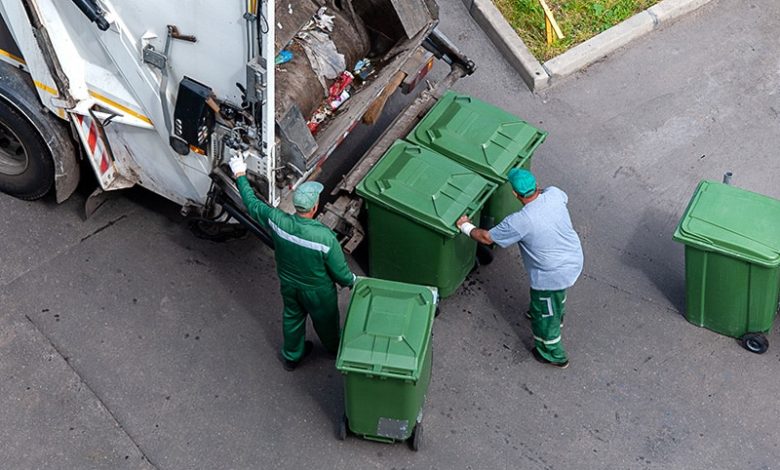Commercial Junk Hauling: Essential Services for Businesses

Introduction
Commercial junk hauling is an essential service for businesses of all sizes. Whether it’s office furniture, construction debris, or old equipment, businesses generate a significant amount of waste that needs to be managed efficiently and responsibly. This article delves into the various aspects of Commercial junk hauling, exploring its importance, types of services offered, methods, and sustainability practices. By understanding the intricacies of commercial junk hauling, businesses can make informed decisions to maintain clean, productive, and eco-friendly operations.
The Importance of Commercial Junk Hauling
Effective junk hauling is crucial for businesses for several reasons:
- Health and Safety: Proper removal of junk reduces hazards in the workplace, preventing accidents and ensuring a safe environment for employees and clients.
- Regulatory Compliance: Adhering to local and national waste management regulations helps businesses avoid fines and legal issues.
- Space Optimization: Removing unwanted items frees up valuable space, enhancing productivity and allowing for better organization.
- Environmental Responsibility: Sustainable junk hauling practices minimize the environmental impact of waste disposal and promote recycling and reuse.
Types of Commercial Junk
Understanding the types of junk generated by businesses is key to effective management:
- Office Junk: Includes old furniture, electronic equipment, paper waste, and general office clutter.
- Construction Debris: Materials such as concrete, wood, drywall, and metal from construction, renovation, and demolition projects.
- Retail Waste: Packaging materials, damaged goods, and old displays from retail stores.
- Industrial Waste: Scrap metal, machinery, and production byproducts from manufacturing facilities.
- Electronic Waste (E-Waste): Outdated or broken electronic devices that require special handling due to hazardous components.
Services Offered by Commercial Junk Hauling Companies
Commercial junk hauling companies provide a range of services tailored to the specific needs of businesses:
Regular Trash Removal
Scheduled trash removal services ensure that businesses can dispose of their daily waste efficiently. These services typically include:
- Weekly or Bi-Weekly Pickups: Regular collection of general waste to maintain a clean work environment.
- Customizable Schedules: Flexibility to adjust the frequency of pickups based on business needs.
Bulk Junk Removal
For larger items or significant cleanouts, bulk junk removal services are essential. These services handle:
- Furniture and Equipment: Removal of old office furniture, machinery, and other bulky items.
- Renovation Debris: Collection and disposal of construction materials and debris from renovation projects.
Recycling Services
Commercial junk hauling companies often offer specialized recycling services to help businesses manage their recyclable waste:
- Paper and Cardboard: Collection and recycling of office paper, cardboard boxes, and packaging materials.
- Metals and Plastics: Proper disposal and recycling of metal scraps and plastic materials.
- E-Waste Recycling: Safe handling and recycling of electronic devices to prevent environmental contamination.
Hazardous Waste Disposal
Some businesses generate hazardous waste that requires special handling and disposal:
- Chemical Waste: Safe disposal of chemicals used in industrial processes or cleaning.
- Batteries and Electronics: Proper recycling and disposal of batteries and electronic waste.
- Medical Waste: Secure disposal of medical waste from healthcare facilities.
Cleanout Services
For businesses undergoing major cleanouts, junk hauling companies provide comprehensive services to clear out spaces quickly and efficiently:
- Office Cleanouts: Complete removal of office junk during relocations, downsizing, or renovations.
- Warehouse Cleanouts: Clearing out warehouses or storage facilities to optimize space and improve operations.
- Retail Cleanouts: Removal of old displays, fixtures, and unsold inventory from retail spaces.
Methods of Commercial Junk Hauling
Different methods are employed to manage and dispose of commercial junk effectively:
Dumpster Rentals
For businesses generating large volumes of waste, renting a dumpster can be an efficient solution:
- Variety of Sizes: Dumpsters are available in different sizes to accommodate varying amounts of waste.
- Flexible Rental Periods: Businesses can rent dumpsters for short-term or long-term projects.
- Convenient Disposal: Dumpsters are delivered and picked up by the junk hauling company, simplifying the disposal process.
On-Demand Junk Removal
For immediate junk removal needs, on-demand services offer a quick and convenient solution:
- Prompt Service: Junk hauling companies can often provide same-day or next-day service.
- Full-Service Removal: Professionals handle all aspects of the removal process, from loading to disposal.
- Eco-Friendly Disposal: Many companies prioritize recycling and environmentally responsible disposal methods.
Scheduled Pickups
Regularly scheduled pickups ensure that waste is managed consistently and efficiently:
- Customized Schedules: Businesses can arrange pickups based on their specific needs and waste generation patterns.
- Reliable Service: Consistent pickups help maintain a clean and organized workspace.
Recycling Programs
Implementing recycling programs helps businesses manage recyclable waste more effectively:
- Dedicated Bins: Providing separate bins for different types of recyclables encourages proper sorting.
- Employee Training: Educating employees about recycling practices improves participation and reduces contamination.
- Partnerships with Recyclers: Collaborating with recycling companies ensures that recyclables are processed correctly.
Sustainability in Commercial Junk Hauling
Sustainability is a growing priority in waste management. Here are some practices that promote eco-friendly junk hauling:
Waste Reduction
Reducing the amount of waste generated is the first step toward sustainability:
- Mindful Purchasing: Choosing products with minimal packaging and opting for reusable items.
- Inventory Management: Managing inventory to minimize excess and avoid waste.
- Donations: Donating usable items to charities or non-profits to extend their lifespan.
Recycling and Reuse
Recycling and reusing materials reduce the environmental impact of waste disposal:
- Comprehensive Recycling Programs: Implementing robust recycling programs for paper, cardboard, plastics, and metals.
- E-Waste Recycling: Ensuring electronic waste is properly recycled to recover valuable materials and prevent pollution.
- Upcycling: Finding creative ways to repurpose old items instead of discarding them.
Green Technologies
Adopting green technologies enhances sustainability in waste management:
- Energy-Efficient Equipment: Using energy-efficient vehicles and machinery to reduce carbon emissions.
- Renewable Energy: Powering operations with renewable energy sources, such as solar or wind power.
- Advanced Recycling Techniques: Utilizing advanced recycling technologies to improve efficiency and recovery rates.
Compliance with Environmental Regulations
Adhering to environmental regulations ensures responsible waste management:
- Proper Disposal Methods: Following guidelines for the disposal of hazardous and non-hazardous waste.
- Permits and Certifications: Obtaining necessary permits and certifications for waste handling and disposal.
- Regular Audits: Conducting regular audits to ensure compliance with environmental standards.
Case Studies
Case Study 1: Office Cleanout for a Growing Tech Company
A tech company undergoing rapid expansion needed to clear out an old office space to move to a larger location. They hired a commercial junk hauling company to handle the cleanout. The service included:
- Sorting and Recycling: The junk hauling team sorted items for recycling, donating usable items to local charities, and responsibly disposing of the rest.
- Efficient Service: The cleanout was completed in a single day, allowing the company to move quickly to their new office.
- Environmental Impact: By recycling and donating items, the company minimized its environmental footprint.
Case Study 2: Retail Store Renovation
A retail store planning a major renovation required the removal of old displays, fixtures, and inventory. They partnered with a junk hauling company that provided:
- Dumpster Rental: Multiple dumpsters were delivered to the site for the collection of debris and old fixtures.
- On-Demand Removal: Additional pickups were scheduled as needed to keep the project on track.
- Recycling and Disposal: The company ensured that recyclable materials were processed correctly and waste was disposed of responsibly.
Case Study 3: Manufacturing Plant Cleanout
A manufacturing plant needed to clear out old machinery and scrap metal to make way for new equipment. They enlisted the help of a commercial junk hauling service that offered:
- Specialized Equipment: The junk hauling company used specialized equipment to safely remove heavy machinery.
- Scrap Metal Recycling: All metal waste was sent to a recycling facility, reducing the plant’s environmental impact.
- Comprehensive Service: The entire cleanout was managed by the junk hauling company, allowing the plant to focus on its operations.
Future Trends in Commercial Junk Hauling
The future of commercial junk hauling is shaped by technological advancements and a growing focus on sustainability:
Smart Waste Management
The integration of smart technologies, such as IoT sensors and data analytics, can optimize waste collection routes, monitor bin levels, and improve recycling rates. These advancements enhance efficiency and reduce operational costs.
Circular Economy
The circular economy model emphasizes keeping resources in use for as long as possible through recycling, repurposing, and sustainable design. This approach reduces waste and promotes resource efficiency.
Extended Producer Responsibility (EPR)
EPR policies hold manufacturers accountable for the end-of-life management of their products. This encourages sustainable design, waste reduction, and proper disposal, shifting some responsibility from consumers to producers.
Community Engagement
Involving communities in waste management through education, incentives, and participatory programs can enhance sustainability efforts. Community engagement fosters a sense of responsibility and collaboration, leading to better waste disposal outcomes.
Conclusion
Commercial junk hauling is an essential service for businesses seeking to maintain clean, safe, and productive environments. By understanding the types of junk, exploring various removal methods, and embracing sustainable practices, businesses can effectively manage their waste and contribute to environmental conservation. Whether through regular trash removal, bulk junk hauling, or specialized recycling programs, there are numerous strategies to ensure efficient and responsible waste management.
Adopting sustainable junk hauling practices benefits businesses, communities, and the planet. It promotes resource conservation, reduces environmental impact, and enhances the quality of life. With the right approach and a commitment to sustainability, businesses can play a crucial role in creating a cleaner, healthier future.



